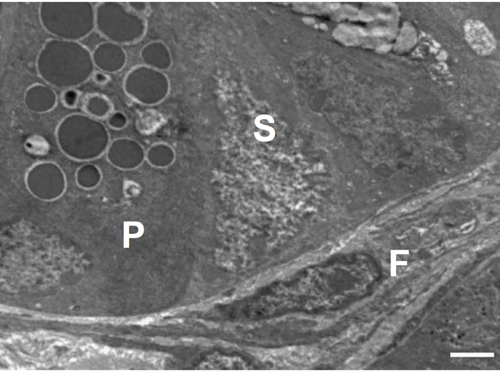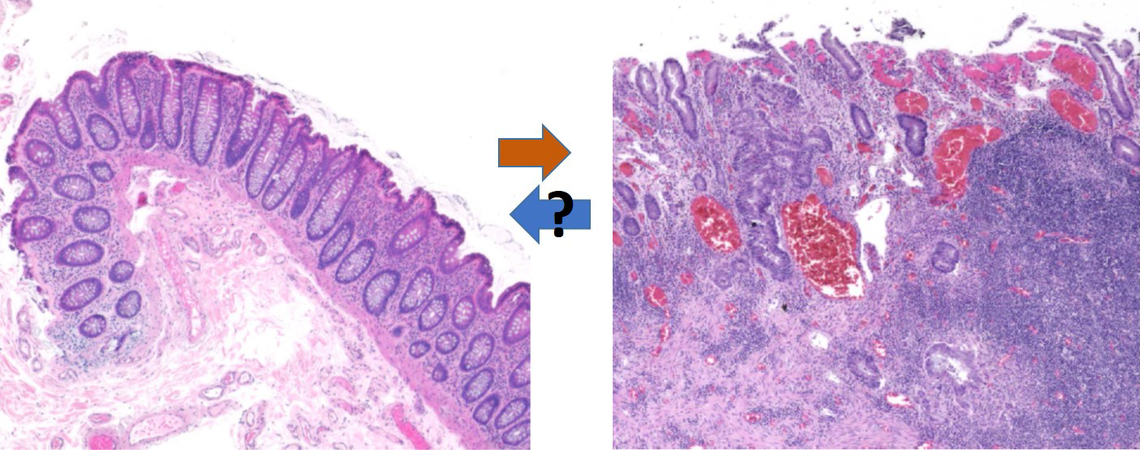Our Research
The mesenchymal microenvironment and its primary constituents, the extracellular matrix and the millions of fibroblasts that build it, is one of the most enigmatic areas of tissue biology today. By integrating single cell studies in human tissues and in mice, with functional analyses in mouse models, human organoids and organotypic systems, our laboratory aims to uncover specific cellular and molecular mechanisms through which fibroblasts control intestinal inflammation, fibrosis and tumorigenesis.

Single-cell technologies opened a new era in tissue biology. We found that "stromal cells" are in fact a family of different cell types, each with a distinct transcriptional program and localization within the tissue. With the tools that we have available, we are mapping the full extent of cellular diversity in the mesenchyme and its spatial organization. Based on this knowledge, we aim to uncover the functional specialization of each fibroblast type in homeostasis, and also understand its implications for disease.

Our previous research proved in principle that tumor initiation by mutated intestinal stem cells is controlled by their mesenchymal niche. We are now investigating mechanisms of interaction between tumor initiating stem cells, their mesenchymal microenvironment and the immune system, to discover novel pathways that control cancer initiation in the gastrointestinal tract.

Chronic inflammation leads to loss of tissue architecture and impairs organ functionality. It also provides a fertile ground for the development of fibrosis and cancer. Our goal, is to understand IF and HOW fibroblasts function as rheostats of inflammatory responses within the local tissue microenvironment. We study the role of fibroblasts in controlling the initiation of inflammatory responses, their resolution or their transition to chronicity, fibrosis and inflammation-associated cancer.

